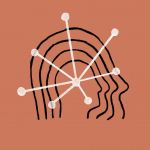For $50 against giants: Researchers create OpenAI competitor for pennies

Researchers from Stanford University and the University of Washington made a breakthrough in artificial intelligence by creating the reasoning model s1 for just $50 in cloud computing costs. Research results published on Friday show that the model demonstrates performance comparable to OpenAI’s o1 and DeepSeek R1 flagship developments in tests of mathematical abilities and programming.
The development team used an open-source base model, which they improved through a distillation process – extracting reasoning abilities from another AI model by training on its responses. Google’s experimental Gemini 2.0 Flash Thinking Experimental model was chosen as the source.
This approach proved significantly more economical than the large-scale reinforcement learning method used by DeepSeek to create their R1 model. The researchers published s1 on GitHub along with training data and code, making the technology available to the entire developer community.
The project’s success raises serious questions about the future of the AI industry. If a small team of researchers can reproduce the functionality of a multi-million dollar model for minimal cost, what remains of the competitive advantage of large AI labs?
The reaction from tech giants didn’t take long. OpenAI has already accused DeepSeek of improper data collection through its API for model distillation purposes. Google, whose model was used to create s1, prohibits reverse engineering of models for developing competing services in its terms of use.
Despite legal questions, this breakthrough demonstrates that innovation in AI is possible even without multi-million dollar investments, opening new perspectives for researchers and small development teams.





